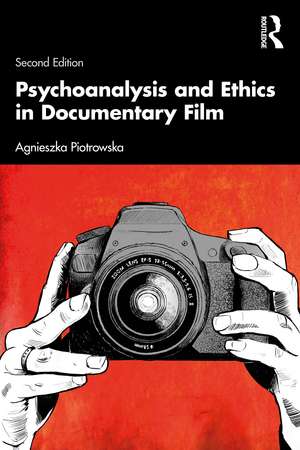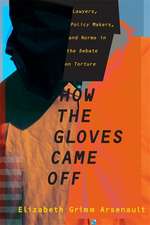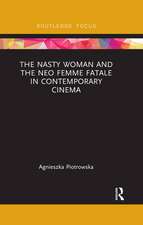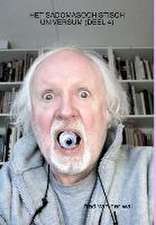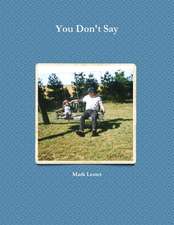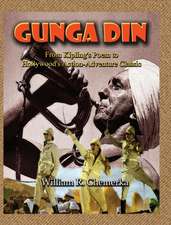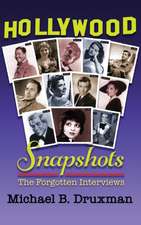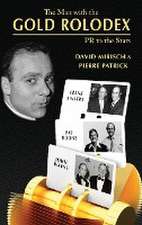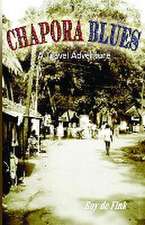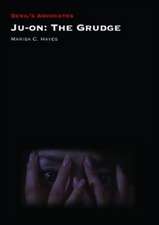Psychoanalysis and Ethics in Documentary Film
Autor Agnieszka Piotrowskaen Limba Engleză Paperback – 14 iun 2023
Original and accessible, the second edition of this ground-breaking book addresses the four fundamental concepts of psychoanalysis and documentary film, reviews documentary film practice as a field, provides a personal account of the author’s relationship with a subject of her own work, and presents a thorough interrogation of the ethics of documentary. The updated text includes a new introduction by the author and an additional chapter ‘Stories We Tell’ by Sarah Polley, centered on ethics and the role of the filmmaker in relation to her participants.
Psychoanalysis and Ethics in Documentary Film, 2nd revised edition has already been used widely and is crucial reading for film studies scholars, psychoanalysts, psychotherapists and psychotherapeutically engaged professionals, as well as filmmakers, culture studies students and anyone interested in the process of documentary-making and contemporary culture.
| Toate formatele și edițiile | Preț | Express |
|---|---|---|
| Paperback (1) | 281.12 lei 22-36 zile | +20.06 lei 5-11 zile |
| Taylor & Francis – 14 iun 2023 | 281.12 lei 22-36 zile | +20.06 lei 5-11 zile |
| Hardback (1) | 1101.07 lei 43-57 zile | |
| Taylor & Francis – 14 iun 2023 | 1101.07 lei 43-57 zile |
Preț: 281.12 lei
Preț vechi: 295.91 lei
-5% Nou
Puncte Express: 422
Preț estimativ în valută:
53.79€ • 56.31$ • 44.51£
53.79€ • 56.31$ • 44.51£
Carte disponibilă
Livrare economică 17-31 martie
Livrare express 28 februarie-06 martie pentru 30.05 lei
Preluare comenzi: 021 569.72.76
Specificații
ISBN-13: 9781032335544
ISBN-10: 1032335548
Pagini: 290
Ilustrații: 11 Halftones, black and white; 11 Illustrations, black and white
Dimensiuni: 156 x 234 x 18 mm
Greutate: 0.41 kg
Ediția:2 ed
Editura: Taylor & Francis
Colecția Routledge
Locul publicării:Oxford, United Kingdom
ISBN-10: 1032335548
Pagini: 290
Ilustrații: 11 Halftones, black and white; 11 Illustrations, black and white
Dimensiuni: 156 x 234 x 18 mm
Greutate: 0.41 kg
Ediția:2 ed
Editura: Taylor & Francis
Colecția Routledge
Locul publicării:Oxford, United Kingdom
Public țintă
Postgraduate, Professional, and UndergraduateCuprins
Introduction 1. Cinema and Psychoanalysis: A Brief Overview 2. Four Fundamental Concepts of Psychoanalysis and Documentary Film 3. Documentary Film: A Discourse of Desire 4. Documentary as Interpellation 5. The Conman and I: A Study in Transference 6. The Ethics of Documentary 7. The Ethics - What Ethics? 8. The Horror of the Doppelganger 9. Filmmaker as Deceiver in Stories We Tell 10. Final Concluding Remarks
Recenzii
'First published in 2014, Psychoanalysis and Ethics in Documentary Film continues to be a key text for documentary studies and more widely for film studies, as well as media and cultural studies, through its sustained and wide-ranging study of the ethical in film practice. Drawing on the work of Butler, Lévinas, Badiou, Žižek, and Freud, but in particular the work of psychoanalyst Jacques Lacan, Piotrowska explores her central concern of the ethical in documentary film practice, focussing on the interview as an emotional and ethical encounter between filmmaker and interviewee/participant. She develops philosophical and psychoanalytical analyses that are made vivid through her discussion of her own professional filmmaking experience and her examination of a wide range of other films, and now in this second edition, examining a number of new films. The revised book with new insights provides a highly compelling argument for film makers, and for all of those involved in representational practice, to attend to ethics in their work. Its analyses and arguments provide an engaging study that remains centrally relevant in exploring and redefining key debates, taking forward our understanding of film, subjectivity and research. The highly thoughtful and illuminating analyses will be of interest to film scholars, psychoanalysts and those working in the broader field of cultural studies.'
Elizabeth Cowie, Professor of Film Studies, University of Kent, UK
'It is the considerable contribution of Piotrowska to have understood just how much can be at stake for any filmmaker/subject encounter in the documentary field. After all, lives are being narrated, bodies represented, trust gained and confidences shared. In this fascinating volume, Piotrowska dares to suggest that this scenario and the depths of the soul and psyche it touches are not so far afield from that which obtains in the analytic setting: the unconscious desires define the encounter. Here she evokes the Lacanian construct – le sujet supposé savoir – the subject supposed to know… It is Piotrowska’s bold claim that such a love may also ensue between the filmmaker and her subject. In the most dramatic section of this book, Piotrowska in fact takes us through one such encounter via her film about a conman. A filmmaker’s production diary is transformed into a case study exploring the shared intimacies, emotional revelations and false promises of a love affair – or analysis – gone awry. Particularly given the role that disparities of age, gender and power play in this relationship (Piotrowska is the younger female who wields the camera), it is as though Dora and Freud are writing as collaborators who occasionally shift places on the couch. It is a dizzying display, juicy of course but also deeply insightful for what it has to tell us about the psychic dynamics potential to any documentary production… I leave you with Agnieszka Piotrowska’s radical and compelling account believing that it has introduced something new, important and no doubt controversial to the documentary studies arena.'
Michael Renov, Professor of Crtical Film Studies and the Vice Dean Academic Affairs at the University of Southern California, USA
Transference-love and documentary film - how can they be thought of together? The conjunction of the two stands at the core of ethical pursuit, theoretical reflection and engaged practice that Agnieszka Piotrowska draws for us in this outstanding, lucid and inspiring book.’
Mladen Dolar, Professor of Philosophy, University of Ljubljana, Slovenia
‘This passionate book offers a radical new understanding of the relationship between documentary filmmakers and their ‘subjects’ – the people who participate in their films. Drawing on her own background as a filmmaker alongside a deep immersion in the literature on psychoanalysis and film, Agnieszka Piotrowska shows how complicated and intense the involvement of filmmakers with their subjects can be. The book announces a remarkable and distinctive interdisciplinary perspective that uses psychoanalysis, philosophy, social theory and film studies to explore the intense underside of the documentary experience.’n
Stephen Frosh, Professor of Psychology, Birkbeck College, University of London
‘Sign your rights away forever and appear in my documentary film for free! In this meticulously researched and wide-ranging exploration of the intimate relationship between subject and filmmaker, encompassing psychoanalysis, ideology and ethics, Agnieszka Piotrowska controversially suggests that the subject may fall into reciprocated love with the filmmaker through transference. Piotrowska's work is a fascinating, important and thought-provoking addition to documentary film theory.’
Jill Daniels, Filmmaker and Senior Lecturer, University of East London
Elizabeth Cowie, Professor of Film Studies, University of Kent, UK
'It is the considerable contribution of Piotrowska to have understood just how much can be at stake for any filmmaker/subject encounter in the documentary field. After all, lives are being narrated, bodies represented, trust gained and confidences shared. In this fascinating volume, Piotrowska dares to suggest that this scenario and the depths of the soul and psyche it touches are not so far afield from that which obtains in the analytic setting: the unconscious desires define the encounter. Here she evokes the Lacanian construct – le sujet supposé savoir – the subject supposed to know… It is Piotrowska’s bold claim that such a love may also ensue between the filmmaker and her subject. In the most dramatic section of this book, Piotrowska in fact takes us through one such encounter via her film about a conman. A filmmaker’s production diary is transformed into a case study exploring the shared intimacies, emotional revelations and false promises of a love affair – or analysis – gone awry. Particularly given the role that disparities of age, gender and power play in this relationship (Piotrowska is the younger female who wields the camera), it is as though Dora and Freud are writing as collaborators who occasionally shift places on the couch. It is a dizzying display, juicy of course but also deeply insightful for what it has to tell us about the psychic dynamics potential to any documentary production… I leave you with Agnieszka Piotrowska’s radical and compelling account believing that it has introduced something new, important and no doubt controversial to the documentary studies arena.'
Michael Renov, Professor of Crtical Film Studies and the Vice Dean Academic Affairs at the University of Southern California, USA
Transference-love and documentary film - how can they be thought of together? The conjunction of the two stands at the core of ethical pursuit, theoretical reflection and engaged practice that Agnieszka Piotrowska draws for us in this outstanding, lucid and inspiring book.’
Mladen Dolar, Professor of Philosophy, University of Ljubljana, Slovenia
‘This passionate book offers a radical new understanding of the relationship between documentary filmmakers and their ‘subjects’ – the people who participate in their films. Drawing on her own background as a filmmaker alongside a deep immersion in the literature on psychoanalysis and film, Agnieszka Piotrowska shows how complicated and intense the involvement of filmmakers with their subjects can be. The book announces a remarkable and distinctive interdisciplinary perspective that uses psychoanalysis, philosophy, social theory and film studies to explore the intense underside of the documentary experience.’n
Stephen Frosh, Professor of Psychology, Birkbeck College, University of London
‘Sign your rights away forever and appear in my documentary film for free! In this meticulously researched and wide-ranging exploration of the intimate relationship between subject and filmmaker, encompassing psychoanalysis, ideology and ethics, Agnieszka Piotrowska controversially suggests that the subject may fall into reciprocated love with the filmmaker through transference. Piotrowska's work is a fascinating, important and thought-provoking addition to documentary film theory.’
Jill Daniels, Filmmaker and Senior Lecturer, University of East London
Notă biografică
Agnieszka Piotrowska, Ph.D., is an award-winning BBC-trained filmmaker and a theorist. She the Reader in film at SODA, Manchester School of Art, Manchester Metropolitan University, UK and a visiting professor in Film and Cultural Studies at the University of Gdansk, Poland. She is the former head of the School for Film, Media, and the Performing Arts at the University for the Creative Arts. She is a member of the General Council of the Visible Evidence network and was the Director of the Visible Evidence conference at the University of Gdansk, Poland in 2022.
Descriere
This distinctively interdisciplinary book draws upon psychoanalytic theory to explore how expectations, desires and fears of documentary subjects and filmmakers are engaged, and the ethical issues that can arise as a result.
